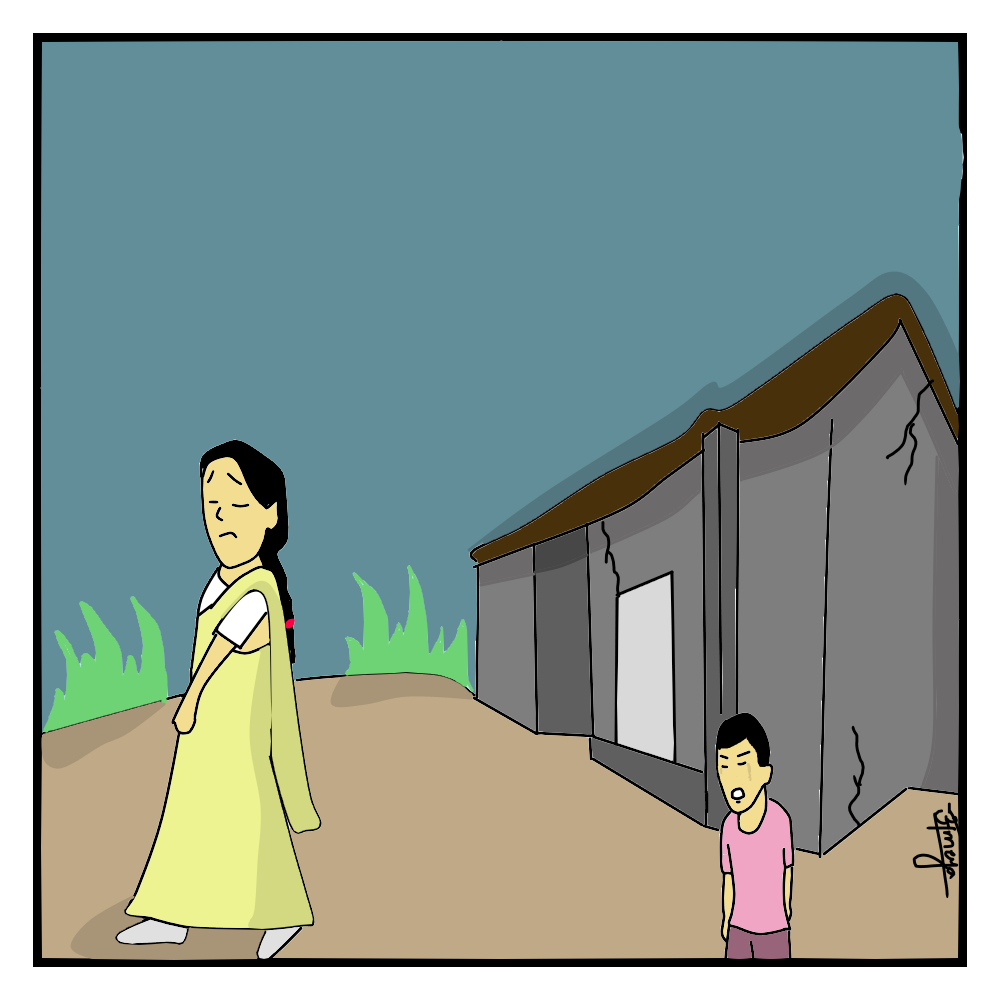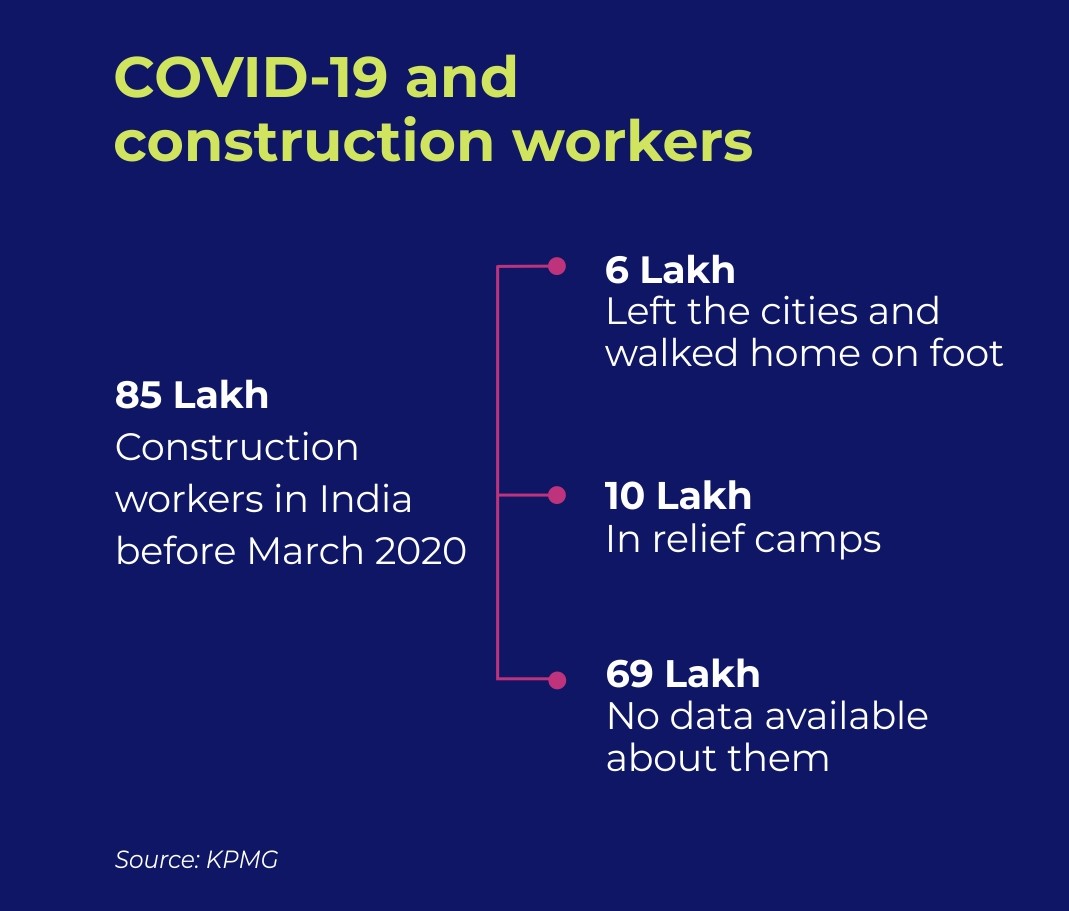August, 2020
COVID-19: How women construction workers are dealing with the Coronavirus pandemic
4 minutes read
March 2020
Shilpa went about her morning chores (click here to know HER story), humming softly to herself. Her life had finally fallen into a somewhat comfortable pattern. The first two weeks after the last worksite got completed were quite harsh. She dreaded fighting it out at the nakas (labour markets), and the uncertainty of finding work gave her nightmares. Luckily, God answered her prayers and she got a job at a site that promised her work for around 3 months. A temporary relief, but a relief nevertheless.
On her way to work, she noticed an unusually high number of people covering their faces. It was not an uncommon sight in Mumbai. Most of the women covered their heads and faces with their shawl to keep out the dust and dirt created by sites like the one Shilpa worked in. But they were no longer just using shawls, they were wearing masks similar to what she had seen doctors wear. Even more surprisingly, men were also wearing it. She made a mental note to ask Latha about this today. Latha, a fellow worker, had a TV at home, had a high school education, and was very worldly-wise in Shilpa’s eyes.
At work, when they finally took a 10-minute break, Shilpa rushed over to Latha to ask her about this crazy observation she had made. And, it was from here that she came to know about the “Coronavirus” which would rule the headlines for months to come.
April 2020
As she stood in line to collect her wages, she heard the words that brought her world tumbling down. The contractor said that due to recent government orders, the site would be shut down for a few weeks and that they won’t be required to come to work. There was a collective outcry which the contractor damped down by making vague promises of weekly compensation and such.
She got by on one meal a day making sure that her kids had enough to eat.
The next two weeks were a blur, the little she had in the way of savings was nearly gone. The contractor provided them with compensation, but her daily wage had now become her weekly wage. She got by on one meal a day making sure that her kids had enough to eat. They were becoming increasingly restless and her patience was wearing thin. But she couldn’t bring herself to scold them. How could she expect them to understand the situation when she hardly had a grip on it herself?
May 2020
When repeated efforts to find some sort of work turned unfruitful, Shilpa began seriously considering the prospect of going home. She knows that trains have started operating and many of her fellow migrant labourers have already left. But for Shilpa, who had left home in the hopes of creating a new life for her and her kids in Mumbai, going back home, jobless and nearly penniless seemed like a personal failure. But she knew that was her best option right now. She may be able to find work in the paddy fields and her parents could take care of the kids while she worked.
June 2020
It’s been a month at home now.
Government rations keep them from starving. She has been unable to find work and feels more hopeless each day. Shilpa thinks back to the day her husband died when she felt that the worst had happened to her. But even then she knew that she was tough enough to survive that. She could control and overcome her feelings and be strong. But what was she supposed to do against a faceless, invisible virus whose name she could hardly pronounce? How could she provide for her children when stepping out could be fatal? How could she move forward when the whole world had stopped in its tracks?
The sharp ringing of the phone pierces through her thoughts. It is her contractor calling to let her know that work was resuming and that she was needed. She says yes without the slightest hint of hesitation and thanks him profusely.

At the station, her younger one, Rahul refuses to let go of her pallu. Her heart breaks as she sees his crestfallen face, but she doesn’t feel safe taking the kids back to the city. She gives both her children a kiss and a hug, asks Lekshmi to look after her little brother, and finally clambers on to the train. As the train starts moving, she can’t help but feel a tiny glimmer of hope. Maybe all wasn’t lost, maybe, just maybe her world return to normalcy again.

References
- Remote interviews conducted by the team at Women’s Identity and Progress

Leave A Comment